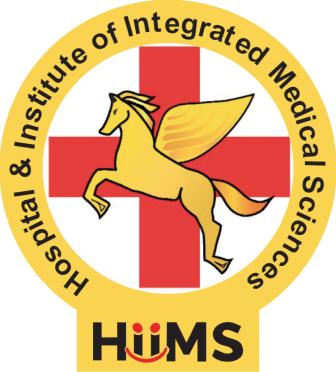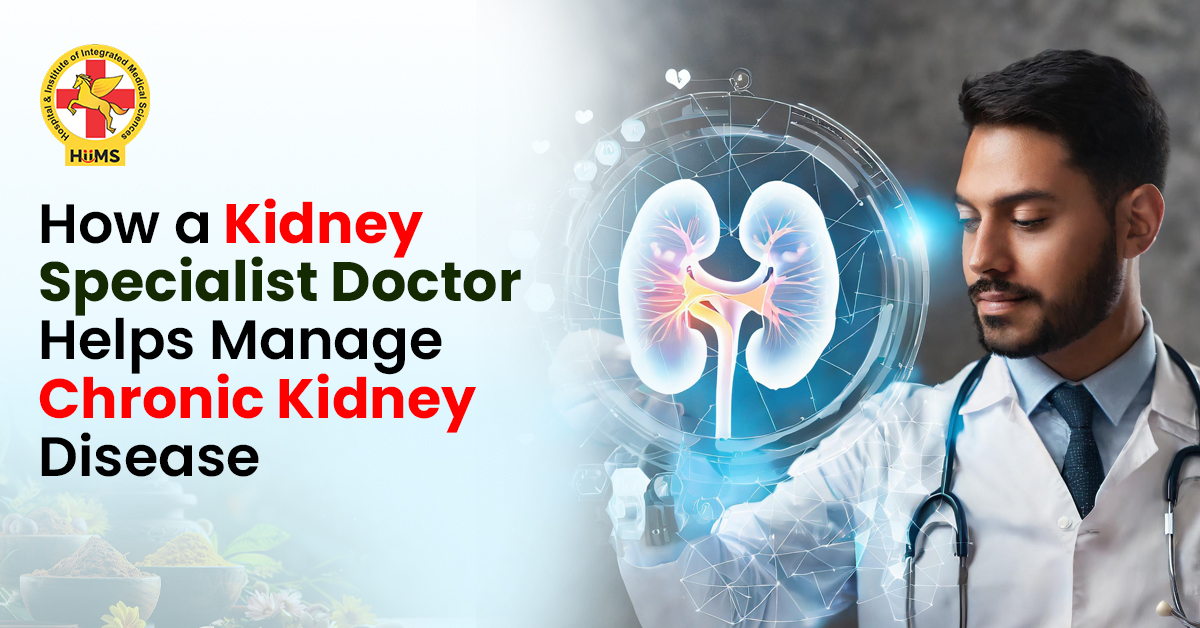Finding the right kidney specialist doctor commonly feels like finding a steady hand when your health drops. The kidneys work quietly by filtering blood, balancing fluids and minerals, and removing waste, so people miss small changes until they become bigger. When fatigue remains, urine changes, or swelling appears, a kidney specialist steps in to read the signs early.
A determined and good doctor does more than prescribe; they interpret tests and map a treatment plan. In places that combine modern tests with Ayurvedic support, care becomes broader: lab monitoring paired with a mindful diet, gentle herbs, and detox routines. This blog explains in simple words what chronic kidney disease looks like, how a dedicated kidney specialist doctor evaluates and treats it, how integrative approaches help, and practical steps you can take today. Read on to learn what to expect at your first visit, how follow-up works, and how to choose the right centre for kidney care.
What Is Chronic Kidney Disease and Why Does It Need Specialist Care?
Chronic kidney disease (CKD) means the kidneys slowly lose function. That can happen because of diabetes, long-term high blood pressure, repeated infections, medicines that stress the kidneys, or inherited issues. General check-ups help, but a kidney specialist knows which tests matter, creatinine, eGFR, urine studies, and imaging and when to act to slow damage. Jeena Skho HiiMS would describe the problem as a long-standing imbalance and build-up of toxins; modern medicine names the markers and risks. Both views can guide practical steps to preserve function.
Role of the Kidney Specialist Doctor
Assessment & diagnosis
A kidney specialist doctor starts with a careful history from the patient, like medicines, diet, and family illnesses. They order blood tests (creatinine, eGFR), urine tests, and ultrasound or other scans, but remember all scans are not necessarily good for body and natural treatment; they can damage the body. Early detection gives the best chance to change the course.
Tailoring the treatment plan
Treatment may include natural medicines, herbs to manage underlying causes, and diet modifications to reduce kidney workload. The kidney specialist coordinates with dietitians, physiotherapists, and, where appropriate, Ayurvedic consultants to create a balanced, safe plan. For patients with stones, referral to a kidney stone specialist may be part of the pathway.
Monitoring & follow-up
CKD needs regular review. A proactive kidney specialist schedules follow-ups, repeats tests, adjusts diet and watches for complications so that problems are caught early and treated.
Collaboration with a kidney specialist hospital & integrative care
If CKD advances or complications appear, a kidney specialist hospital provides round-the-clock care. Facilities that mix modern diagnosis with monitored Ayurvedic therapies give more supportive options, helpful herbs, Panchakarma routines, and diet programs under supervision.
Why choosing the right facility matters — Jeena Sikho HiiMS Rohini
A good centre offers clear diagnostics, personalised plans, and an experienced team. Jeena Sikho HiiMS Rohini is set up to treat many conditions including kidney disease treatment, liver disease treatment, heart failure treatment, diabetes treatment, high blood pressure treatment, infertility treatment, acidity treatment, back pain treatment, jaundice treatment, thyroid treatment and more. As a reputed kidney specialist hospital with integrative programs (including the GRAD system and monitored detox plans), it brings specialists, dieticians, wellness coaches, and Ayurvedic experts together so your care is both modern and naturally supportive. If stones are the issue, the team includes a kidney stone specialist for targeted care.
Practical advice patients should follow
- Follow the kidney specialist’s instructions for medicines and tests.
- Cut down processed foods, excess salt, and sugary drinks.
- Keep hydrated sensibly and aim for gradual, steady weight control.
- Stay active with gentle exercise; sleep and stress management matter.
If considering herbal or Ayurvedic measures, always discuss them with your kidney specialist doctor first to ensure safety.
Conclusion
Consultation with a highly qualified kidney specialist doctor gives people the best chance to slow CKD, reduce symptoms, and protect long-term health. Early detection, regular monitoring, personalised diet and herbs, and sensible lifestyle changes matter more than quick fixes. When a specialist is from Ayurveda with supervised Ayurvedic support at an integrative kidney specialist hospital, patients often gain steadier energy, fewer complications and clearer daily routines. If you notice persistent fatigue, swelling, changes in urine, or other concerning signs, take your steps without delay. To book a consultation at Jeena Sikho HiiMS Rohini and begin a monitored, compassionate plan, call +91 93136-66680 or email care@jeenasikho.com.
FAQs
Q1: What tests will a kidney specialist doctor typically order?
Common exams include creatinine and eGFR blood tests, urine studies, and an ultrasound to check structure and function.
Q2: How does treatment for kidney problems combine with Ayurvedic care?
Safe integrative plans pair conventional diagnosis and monitoring with supervised dietary adjustments and supportive herbal measures.
Q3: When should I see a kidney stone specialist?
Consult a kidney stone specialist if you have repeated pain, blood in urine, or imaging that shows stones needing treatment.
Q4: What services does a kidney specialist hospital provide?
A kidney specialist hospital like Jeena Sikho HiiMS Rohini offers diagnostics, natural treatment support, Panchakrama, GRAD and coordinated multidisciplinary care.
Q5: Which other conditions does Jeena Sikho HiiMS Rohini treat?
The center provides treatment for kidney failure, liver failure, heart failure, diabetes, high blood pressure, infertility, acidity, back pain, jaundice, thyroid problems, and various other disorders.

